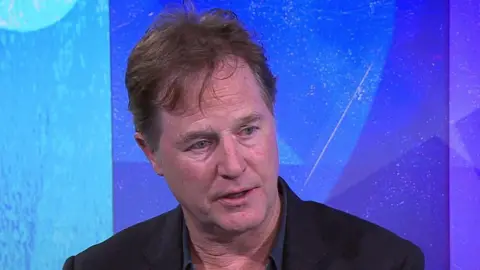Nick Clegg accuses US vice president JD Vance of 'rank hypocrisy' over free speech criticism
Former UK deputy prime minister says Vance attacks European speech laws while silencing critics at home
Former UK deputy prime minister Sir Nick Clegg has accused US Vice President JD Vance of "rank hypocrisy" for criticising European free speech protections while, he said, attempting to silence dissent in the United States.
Speaking on BBC Newsnight two days ago, Clegg said it was an "outrageous double standard" for Vance and other right-wing US politicians to denounce measures such as the UK's Online Safety Act as evidence that free speech in Europe was "in retreat", while taking steps at home that Clegg characterised as intimidating critics.

Clegg, the former leader of the Liberal Democrats who until last year served as Mark Zuckerberg's deputy at Meta, criticised what he described as close ties between Silicon Valley and the Trump administration. He warned those relationships were starting to resemble "Chinese-style cooperation" between government and big technology companies.
The remarks came after Vance used his first international speech since taking office in February to publicly rebuke close US allies over immigration and speech rules. At the Munich Security Conference, Vance pointed to the conviction of a British army veteran for silently praying outside an abortion clinic as an example of a perceived erosion of "basic liberties of religious Britons." Vance has also singled out the Online Safety Act and other European measures in arguing that free expression is under pressure abroad.
Clegg told Newsnight he found it intolerable that politicians who decry restrictions overseas were simultaneously, in his view, seeking to "intimidate and bully" domestic critics. "I cannot stand the rank hypocrisy of senior right-" he said, trailing off in the interview as he made his point about double standards. He repeated his concerns about the influence of US political actors on major technology platforms formerly based in Silicon Valley.
Vance's interventions have underscored a growing transatlantic debate over the balance between protecting citizens from online harms and safeguarding free expression. Supporters of measures such as the Online Safety Act argue the laws are intended to curb harassment, disinformation and harms faced by vulnerable groups online. Critics contend such regulations can have chilling effects on speech and be used to suppress dissenting voices.
The exchange highlights tensions between a US administration that has taken a vocal posture on cultural and legal differences with European allies and UK officials who defend their domestic legal frameworks. Clegg's comments add to a stream of responses from British figures who have pushed back against what they perceive as external interference in UK policy debates.
Neither Vance nor his office responded immediately to requests for comment when asked about Clegg's remarks. The vice president's earlier speech in Munich remains the most detailed public instance of his criticism of European approaches to speech and social regulation since taking office.
Clegg's media appearance also follows his move into the private sector, where his role at Meta drew scrutiny during debates about platform moderation, regulatory capture and the influence of technology firms on public policy. His public rebuke of Vance blends his political background with concerns shaped by his time in and around the technology industry.
The exchange between a high-profile former British official and the US vice president is likely to keep scrutiny on how allied democracies address online harms while protecting civil liberties, and on the rhetoric senior politicians use when commenting on each other's domestic policies.
